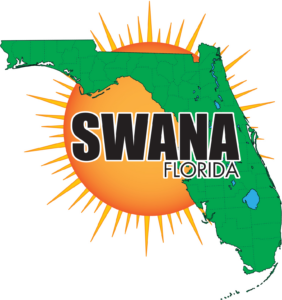SWANA Releases 2024 ARF Report on Organic Waste and CO2 Emissions
Report on Organic Waste Treatment CO2 Avoidance Is Now Available to SWANA Members as a Free Member Benefit
The SWANA Applied Research Foundation (ARF) report examines carbon dioxide emissions and costs avoided when diverting organic waste from the landfill.
October 24, 2024 – SILVER SPRING, MD The SWANA Applied Research Foundation (ARF) released a new research report titled “Carbon Dioxide Avoided Emissions Costs.” This report dives into the impact of greenhouse gas (GHG) avoidance when diverting mixed organic wastes from landfill disposal by using thermal and/or biological treatment technologies. It provides the cost per ton of carbon dioxide emissions avoided through various options for processing mixed organics compared to disposal in landfills. The report concludes that the most cost-effective method of reducing carbon dioxide (CO2) emissions (or their equivalents) is associated with the disposal of organic waste.
“SWANA is pleased to make this report available to members. It provides applicable data for our industry to make decisions on organics disposal options. SWANA would like to thank the Applied Research Foundation members for selecting this topic and for their collaboration in the research process,” says SWANA Executive Director & CEO Amy Lestition Burke, MA, FASAE, CAE.
The research used EPA’s Waste Reduction Model (WARM) to evaluate emissions associated with organic management in four types of facilities: landfills, waste-to-energy facilities, anaerobic digestion, and composting. The cost per ton of avoided emissions is an analysis based on representative tipping fees used to process or dispose of mixed organics. Based on the results of the study, the most cost-effective method of reducing carbon dioxide emissions for organics disposal is processing in a composting facility, which would save an estimated $48 per metric ton of carbon.
Jeremy O’Brien, SWANA Director of Applied Research, presented the findings today during a packed session at WASTECON®. Attendees were interested in the available data and provided insightful questions and comments.
Earlier this year, SWANA submitted comments on the US Draft National Strategy for Reducing Food Loss and Waste and Recycling Organics. “SWANA encourages the prevention of food waste and loss, and the responsible management of organics recycling,” adds Lestition Burke. “This research supports SWANA’s mission of being a climate champion.”
The full report is now available to SWANA members free of charge and to non-members for a fee.
To learn more about SWANA and the Applied Research Foundation, visit https://swana.org/resources/research.


